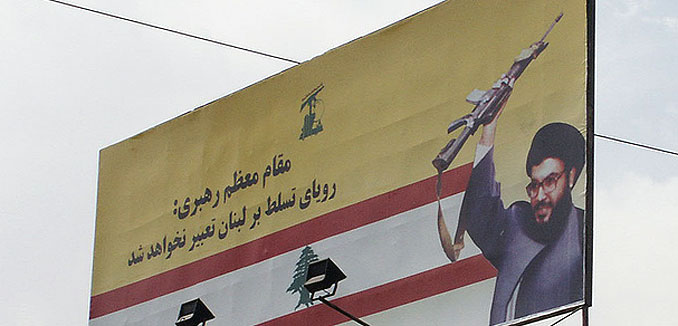Just a day after Hezbollah leader Hassan Nasrallah spoke of “coffins of Israeli soldiers,” the organization has thrown into disarray internal Lebanese talks about a national dialogue.
The Hezbollah-affiliated Al-Manar TV said the reason for the party’s boycott of the Dialogue session was what it termed [Lebanese President Michel] Suleiman’s “offensive and harmful speech” against the resistance.
Suleiman’s relations with Hezbollah have been strained over the president’s repeated criticisms of the party’s military involvement in the war in Syria.
Hezbollah has also rejected Suleiman’s proposal for a national defense strategy that would allow the party to keep its arms, but place them under the command of the Lebanese Army, which would have exclusive authority to use force.
This is the latest attempt by the Iranian-funded Hezbollah to circumvent United Nations Security Council Resolution 1701, which calls for the disarming of all militias in Lebanon other than the official Lebanese army.
Most of Hezbollah’s huge arsenal of rockets and missiles is pointed in Israel’s direction but the organization’s military wing also poses a very real security threat within Lebanon. Hezbollah has erected its own checkpoints across Lebanon where heavily-armed paramilitaries stop whomever they wish. Their impact is felt around the clock in the south and in the Bekaa Valley close to Lebanon’s eastern border with Syria.
“They [Hezbollah] have been controlling the whole [Bekaa Valley] region. They’re putting pressure on the Sunni communities and trying to track everyone.”
Following the February election, the country’s political parties agreed to establish “an all-embracing cabinet” of 24 ministers, eight from Hezbollah and its pro-Syrian, pro-Iranian allies, eight from the pro-Western March 14 bloc, with independents comprising the remainder.
The hope was that a government of national unity would hold for some time. However, since then the Lebanese political system has been paralyzed, with a presidential election slated for this summer still in question.




